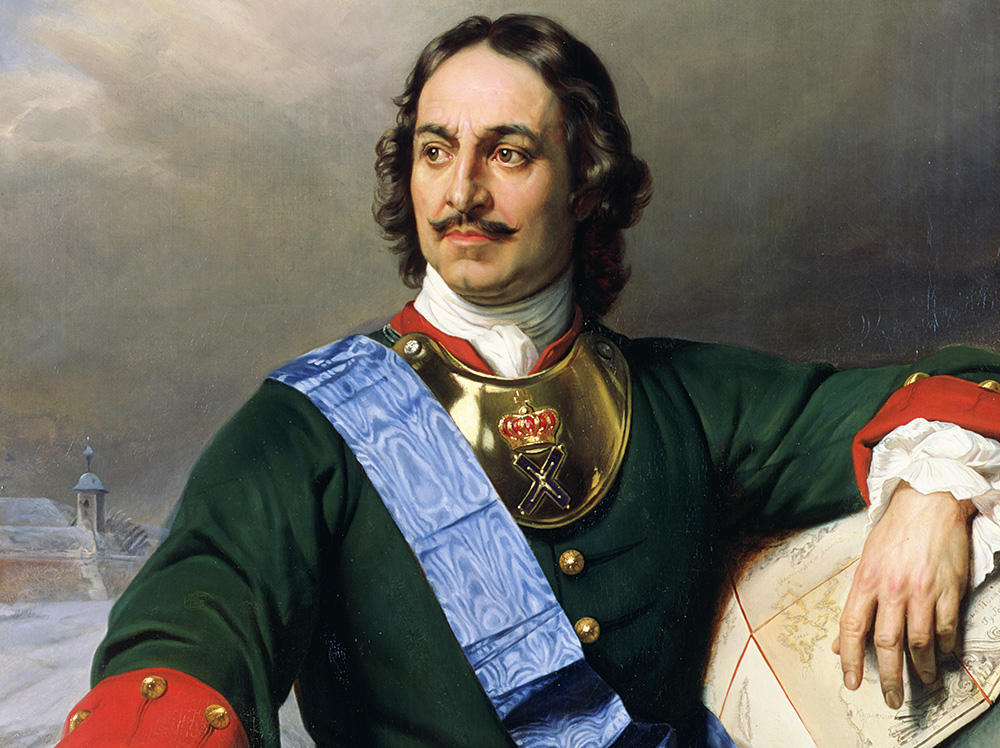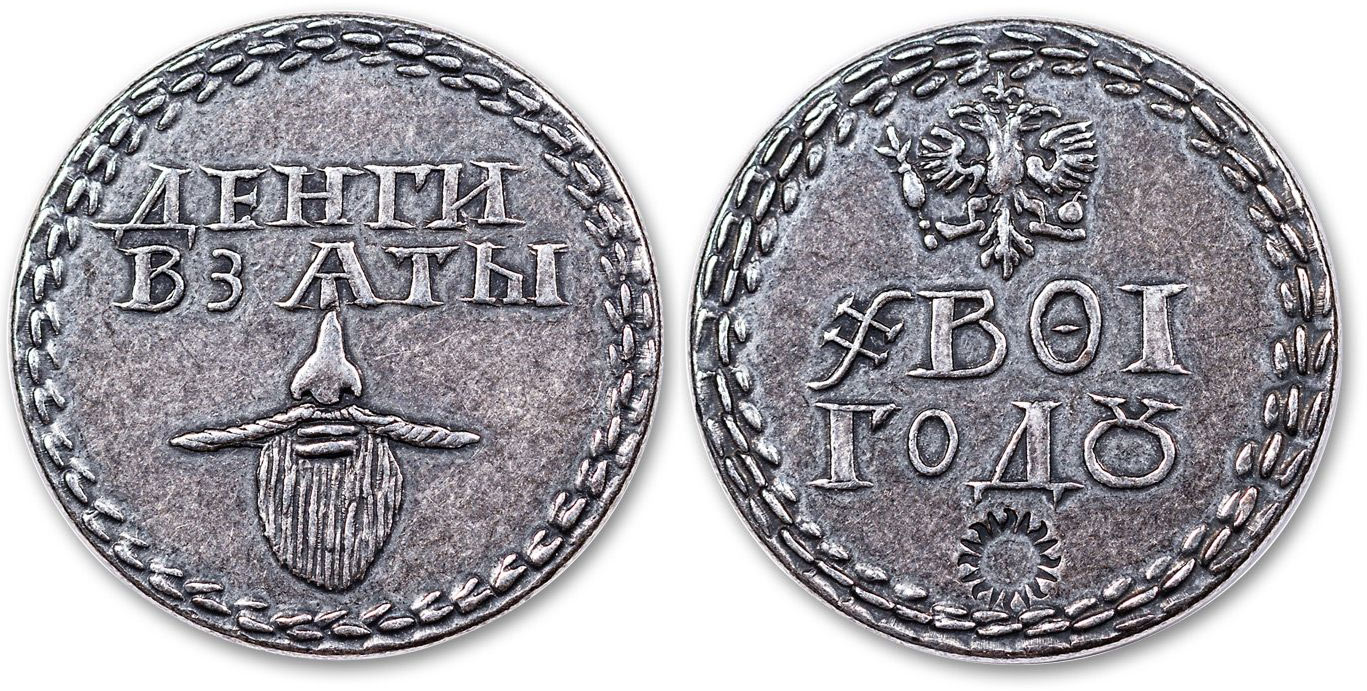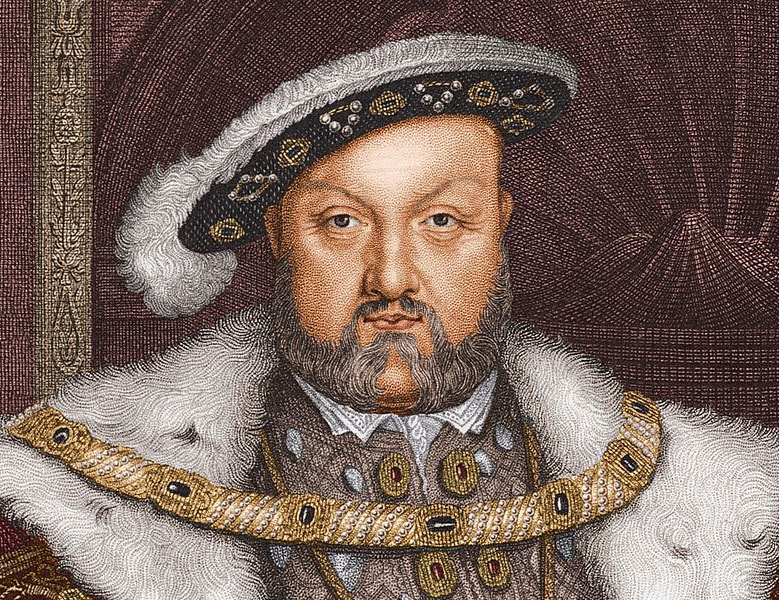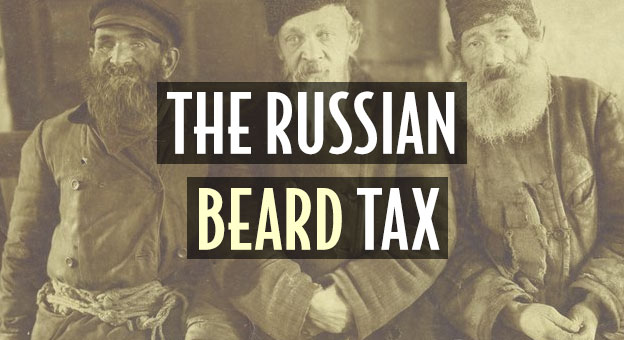“Don’t judge a man by the size of his ego or his heart, but on the epicness of his beard and the beautiful woman on his arm” – Abraham Lincoln
That’s a bold statement from the famously bearded President Lincoln, but beards haven’t always been admired. While Greek philosophers donned beards to show wisdom, it wouldn’t have been wise to sport a luscious beard in Russia under Peter the Great.
Here’s the history of the Beard Tax and why bearded men once needed to carry a beard token in Russia.
Beard Tax: Russia | Beard Coin | More Beard Taxes
History of Russia’s Beard Tax

The first emperor of Russia, Peter the Great, traveled extensively throughout Europe in the late 17th century on what was known as the Grand Embassy. During these travels, he observed the modern customs, technologies, and military practices of Western European nations. He was particularly struck by the clean-shaven faces of European men, which contrasted sharply with the traditional long scruffy beards worn by Russian men.
Although Peter himself donned a mustache, he viewed beards as a symbol of Russia’s archaic old ways and perceived them as an obstacle to modernization. In an effort to Westernize Russian society, he decreed that all men, except clergy and peasants, must shave their beards. Those who wished to keep their beards were required to pay a hefty annual beard tax.
How much was the beard tax? The tax varied according to the wearer’s social status, with higher rates for nobles and lower rates for commoners.
Bearded Men Had to Carry a “Beard Token”

To enforce the new beard tax, Peter established a system where men who paid the tax received a “beard token” which was a copper or silver coin that served as proof of payment.
Russia minted these beard tokens from 1699-1725 and they bore the inscription “The beard is a superfluous burden” in Cyrillic with the image of a crudely drawn beard.
Tip: Don’t leave your beard token at home! Men found without these tokens risked having their beards forcibly shaved by the Russian police. Now that’s what I call a hairy situation! Am I right, Comrades?
OK, well the Beard Tax was a uniquely stupid idea by Peter the Great, and no other world leaders had the brilliant idea to tax beards, right?… Right?
Other Historical Beard Taxes

Although the Beard Tax imposed by Peter the Great was the most famous tax on beards, there have been several other beard taxes throughout history. Here are a few:
- The infamous Henry VIII of England reportedly introduced a tax on beards in the mid-16th Century even though he famously had a beard himself
- The bearded Francis I of France got the Pope’s blessing to tax priests’ beards in the early 16th Century to help fund wars with the Holy Roman Empire. His beard tax caused a rift between classes of priests, as wealthier priests could afford the luxury of wearing a beard while poorer village priests could not
- The King of Yemen introduced a no-beard tax in 1936. Unlike other beard taxes, this law encouraged beards and taxed men who did not wear one. Other Islamic nations use Sharia law to require beards instead of an official government tax.
- Poland introduced a tax on mustaches in the 18th Century. This tax was part of a broader set of fiscal measures aimed at increasing state revenue and included beards and goatees
*Get up to $20 off TurboTax here!
Down With the Beard Tax!
Throughout history, beards have symbolized various attributes and statuses in society and religions. While there have been many beard and haircut laws, there have only been a few examples of actual government taxes imposed on beards. The odd thing is that most leaders who introduce a beard tax have a beard themselves which makes you wonder about politicians and their issues.
I hope you enjoyed this article, and if you did, please share it or link to it! Thanks for visiting Pretty Sweet!

